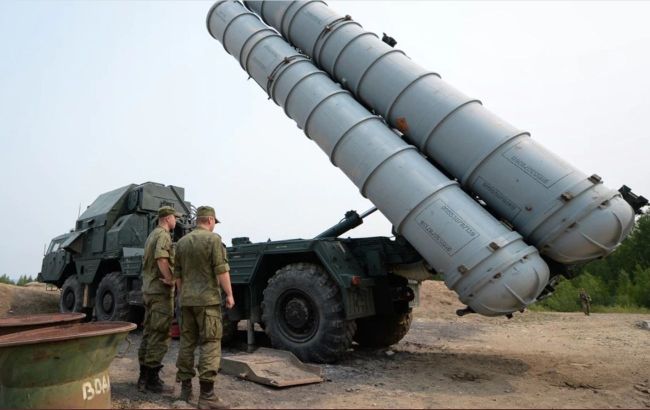S-300 no longer hitting Kharkiv? West's permission to strike Russia causes problems for occupiers
 Russians have not recently shelled Kharkiv with S-300 missile systems (Getty Images)
Russians have not recently shelled Kharkiv with S-300 missile systems (Getty Images)
Recently, there have been no recorded S-300 missile system attacks on Kharkiv. Local authorities link this to the approval given to Ukraine to strike Russian territory using Western weapons.
Below are details on how long the S-300 strike pause has lasted and the problems faced by the occupiers.
Contents
- No more S-300 strikes on Kharkiv: What is known
- Expert opinion
- Approval for Ukraine to use Western weapons to strike Russian territory
No more S-300 strikes on Kharkiv: What is known
Local regional council member Oleksandr Skoryk said on a TV broadcast that Kharkiv has not been hit by S-300 missiles for the past two days.
"We haven't had S-300 missiles hit Kharkiv territory for two days. This is because our partners allowed us to strike our neighbors' territory. The Ukrainian Armed Forces simply destroyed some of their installations... This is good news," he said.
However, he added that Russian forces continue to attack with other weapons, including guided bombs. A concerning issue for Kharkiv is that, due to previous delays from Western partners, Russian forces destroyed all energy generation facilities, including the Zmiivska TPP, CHP-5, and CHP-3.
"All essential electricity generation and energy system balancing facilities have been destroyed," added the city council member.
According to the reports of Kharkiv Regional Military Administration head Oleh Syniehubov, the last recorded S-300 attack on Kharkiv was on May 31, 2024.
Expert opinion
Oleksandr Musiienko, head of the Center for Military-Political Studies, agrees that the pause in S-300/S-400 attacks is related to the Western partners' approval for Ukraine to use their weapons on Russian territory.
"It is a fact that Ukrainian forces are targeting S-300 and S-400 systems and systematically working against them. We have already seen at least one S-300 system destroyed by Ukrainian HIMARS strikes. I believe this work will undoubtedly continue," said Musiienko.
According to the expert, S-300 and S-400 systems are high-priority targets for Ukrainian forces to protect Kharkiv and allow Ukrainian aviation to launch Storm Shadow and SCALP-EG missiles at the enemy.
"Currently, the enemy faces problems. They need to quickly relocate their systems. Previously, they believed they could bombard Kharkiv with impunity and stay in their positions, but now they can't. They are forced to move quickly and find new locations. This is why there have been no S-300 strikes on Kharkiv recently," Musiienko explained.
However, he cautioned that it is too early to say that Ukraine has completely thwarted these systems' attacks.
"We can only confirm this when we see that Russia is no longer deploying these systems in the Belgorod region. Only then can we state that there is no threat from S-300 or S-400 systems to Kharkiv. It is impossible to achieve maximum effect in just a day or two," Musiienko concluded.
Approval for Ukraine to use Western weapons to strike Russian territory
Several Western partners have approved the use of the weapons provided to Ukraine for strikes on targets in Russia. The US, in particular, has made such a decision, specifying that the approval applies to Russian regions bordering Ukraine. This permission might be expanded further. Germany has stated that Ukrainian forces can theoretically shoot down invader aircraft in Russian airspace using German Patriot systems. According to media reports, France does not oppose strikes with SCALP missiles on airfields in the Kursk and Belgorod regions.
Additionally, the Netherlands and Denmark have allowed strikes on targets in Russia using F-16 fighter jets, which will soon be delivered to Ukrainian forces.
Meanwhile, UK Foreign Secretary David Cameron said that Kyiv has the right to strike targets in Russia with British weapons.
Sources: Telegram channels of Kharkiv Mayor Ihor Terekhov and Kharkiv Regional Military Administration head Oleh Syniehubov, a statement by Kharkiv regional council member Oleksandr Skoryk on the Kyiv 24 channel, and an exclusive comment from the head of the Center for Military-Political Studies, Oleksandr Musiienko.

